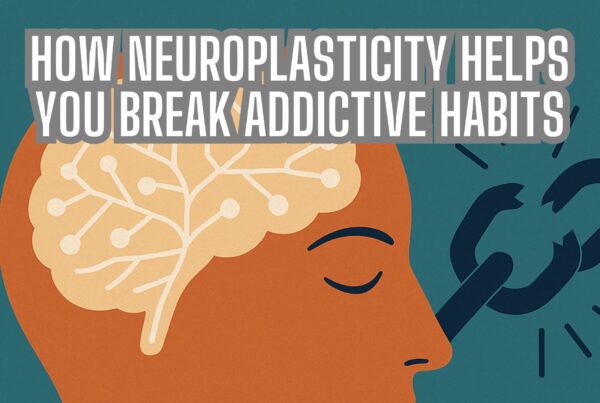Journaling for Addiction Recovery: A Therapeutic Tool for Inner Healing
Addiction is a complex and challenging road to navigate, but there is hope for those seeking recovery. Alongside professional therapy and support, incorporating journaling into your healing process can be a powerful tool to aid in your journey towards freedom from addiction. In this blog post, we will explore the transformative potential of journaling and how it can help you on your path to recovery. Let’s explore journaling for addiction recovery.
Unleashing Emotions and Finding Clarity: Journaling as a Therapeutic Outlet
Journaling offers a safe, private space for self-expression, making it an invaluable outlet for processing emotions. Addiction often brings with it overwhelming thoughts and feelings. Writing them down allows you to release anxieties, fears, and frustrations that might otherwise remain bottled up.
Research conducted by psychologist James W. Pennebaker demonstrates the immense benefits of expressive writing. His studies revealed that journaling about emotional experiences can lead to improved mental well-being, reduced stress, and even enhanced immune system function (Pennebaker & Beall, 1986). When you commit to regular journaling, you cultivate emotional healing by fostering self-awareness and addressing your feelings directly.
Reflection and Self-Discovery: Gaining Insight into Addiction Triggers
Journaling is not just about expressing emotions but also understanding them. Writing creates a bridge between the conscious and subconscious mind, helping you uncover the deeper causes and triggers of your addiction.
Think of journaling as a flashlight, illuminating the hidden corners of your psyche. It helps to reveal patterns, recurring themes, and emotional wounds that influence addictive behaviours. By identifying these triggers, you can develop healthier coping mechanisms, paving the way for more conscious and intentional choices.
Building a Supportive Relationship with Yourself: Journaling for Self-Compassion
Addiction often leaves individuals feeling disconnected from themselves and their values. Journaling can be a pathway to rebuild a loving and compassionate relationship with oneself. By acknowledging your struggles, victories, and setbacks in writing, you create a narrative of self-compassion and acceptance.
A study published in the Journal of Counseling Psychology explored the impact of self-compassion on addiction recovery and found that higher levels of self-compassion were associated with greater motivation to change addictive behaviors and increased well-being (Kelly et al., 2010). By journaling, you allow yourself the opportunity to practice self-compassion, embracing both the triumphs and challenges of your recovery journey.
Setting Goals and Tracking Progress: Journaling as a Tool for Accountability
Incorporating goal setting and progress tracking into your journaling practice can provide structure and accountability on your path to recovery. As you write down your intentions, desires, and milestones, you create a roadmap to guide you towards your goals.
Using metaphors, think of your journal as a compass that keeps you on track and a treasure map that reveals the hidden treasures of your inner strength and resilience. By regularly reviewing your entries, you can celebrate your successes, identify areas for growth, and make necessary adjustments to your recovery plan.
Cultivating Gratitude and Positivity: Journaling for Emotional Well-being
Practicing gratitude and focusing on positive aspects of your life can be a powerful antidote to the negative emotions often associated with addiction. Journaling provides a dedicated space to acknowledge and appreciate the good things in your life.
A study published in the Journal of Personality and Social Psychology found that individuals who engaged in gratitude journaling experienced greater emotional well-being and reduced symptoms of depression (Emmons & McCullough, 2003). By incorporating gratitude journaling into your routine, you shift your focus towards the positive, fostering a sense of hope, contentment, and joy on your journey to recovery.
Making Journaling a Part of Your Recovery Journey: Practical Tips
- Start Small: Begin with short journaling sessions, gradually increasing the duration as you become more comfortable with the practice.
- Make It a Habit: Set a regular time for journaling, such as in the morning or before bed, to create consistency in your practice.
- Embrace Authenticity: Write without judgment or self-censorship. Allow your thoughts and emotions to flow freely onto the pages of your journal.
- Experiment with Different Styles: Explore different journaling techniques, such as free writing, prompts, or gratitude lists, to find what resonates best with you.
- Stay Consistent: Commit to journaling regularly, even on days when you may not feel motivated. Consistency is key to reaping the long-term benefits of this practice.
Journaling For Addiction Recovery
Journaling can be a transformative tool on your journey to addiction recovery. By providing an outlet for self-expression, promoting self-reflection, fostering self-compassion, enhancing accountability, and cultivating gratitude, journaling empowers you to reclaim your inner strength and reshape your narrative. Embrace the power of words, grab your pen, and embark on this healing journey today.
Release Hypnosis Melbourne Hypnotherapy
Since 2015, Lawrence Akers has been working under the name Release Hypnosis offering Hypnotherapy and ACT based work to the people of Melbourne or an online service. Based on St Kilda Rd, Release Hypnosis is an easy and convenient location to get to and accessible by the ANZAC station train and tram stop. Release Hypnosis can help with a wide range of presenting issues, and I offer a free 30 minute no obligation discovery call for those who are unsure if hypnotherapy is the right way forward for them.
References:
- Pennebaker, J. W., & Beall, S. K. (1986). Confronting a traumatic event: Toward an understanding of inhibition and disease. Journal of Abnormal Psychology, 95(3), 274-281.
- Kelly, A. C., Zuroff, D. C., Foa, C. L., & Gilbert, P. (2010). Who benefits from training in self-compassionate self-regulation? A study of smoking reduction. Journal of Social and Clinical Psychology, 29(7), 727-755.
- Emmons, R. A., & McCullough, M. E. (2003). Counting blessings versus burdens: An experimental investigation of gratitude and subjective well-being in daily life. Journal of Personality and Social Psychology, 84(2), 377-389.
Book Your FREE 30 Minute Consultation With Release Hypnosis NOW!
You may also like to read:
How to Change Your Habits: Tips from a Clinical Hypnotherapist
How ACT Can Help With Addiction Issues
Urge Surfing and How Can it Help You Overcome Addiction
Mastering Mindful Communication: Enhancing Relationships and Connections








